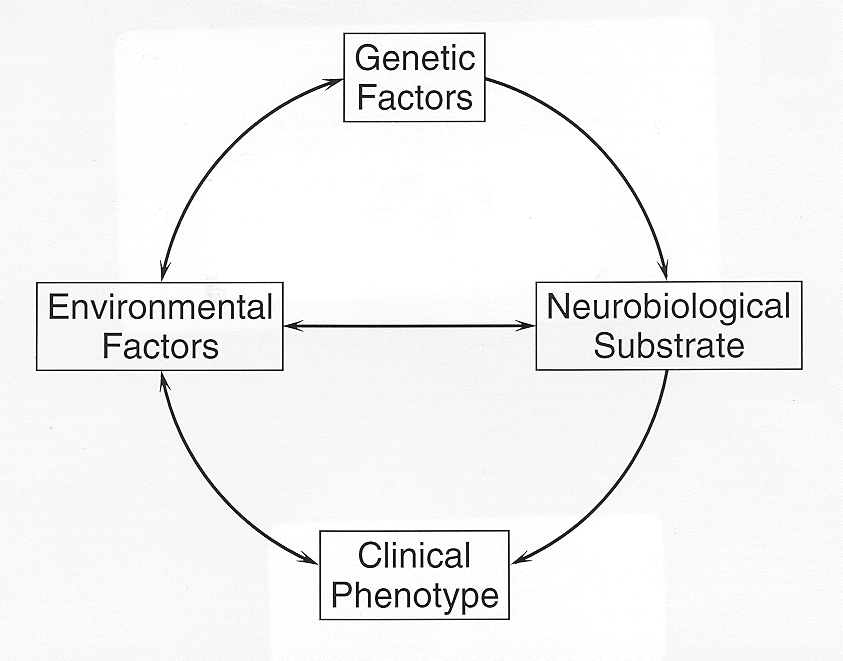
| Figure 1. |
 |
| Pathogenesis of Tic Disorders. This figure depicts the interactions among genetic vulnerability factors and epigenetic events as they constrain the development of relevant neurobiological systems and ultimately lead to the expression of specific clinical phenotypes (50,59). The genetic vulnerability factor(s) that underlie Tourette's syndrome (TS) and other tic disorders likely influence the structure and function of the developing brain as well as the brainís susceptibility to post-infectious autoimmune injury. Other epigenetic factors that likely influence the expression of the TS diathesis include transient cerebral hypoxia during labor and delivery and chronic psychosocial stress. |
published 2000